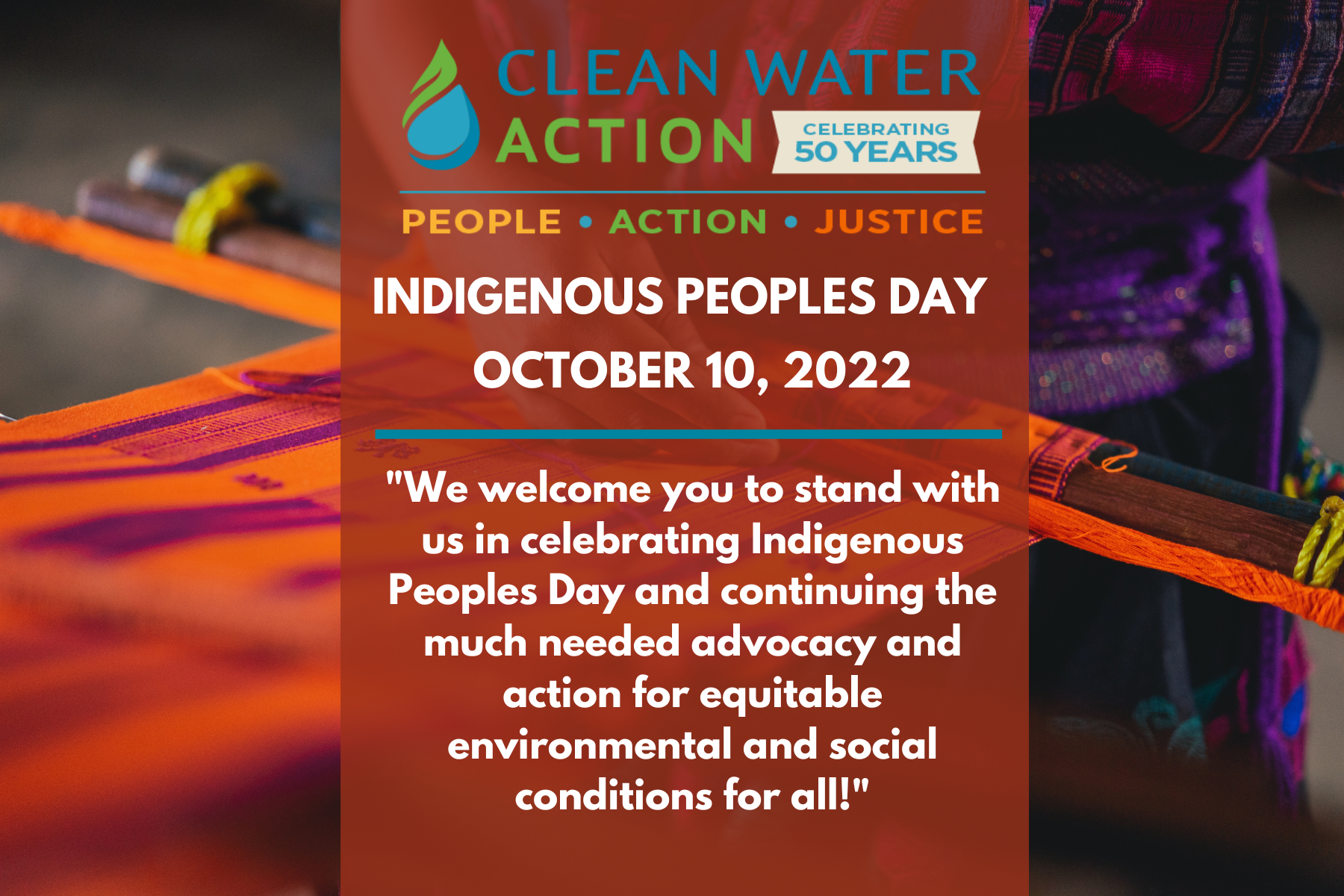
Today, Clean Water Action encourages friends, Clean Water Action members, and partners in communities across the country to join us in recognizing Indigenous Peoples Day.
Over 500 federally recognized Indigenous Nations share the geography of what is currently known as the United States, and hundreds more lack official recognition. This land has also become home to Indigenous immigrants from across the continent and around the world.
Indigenous Peoples Day celebrates the rich and diverse cultures and contributions, past, present, and future of these Nations and people, and rejects the violence and harms of settler colonization. Indigenous communities continue to bear a disproportionate burden of environmental pollution, state violence and oppression, and industrial natural resource extraction, contributing to unjust heavy health burdens and intergenerational trauma, as well as cultural dispossession and destruction of heritage.
As an organization committed to centering justice and equity, acknowledging this holiday is one small step we can take to center Indigenous people and put the spotlight on the fact that throughout U.S. history, as a nation we have continually failed to fulfill our obligations under the treaties we signed with the original inhabitants of this land.
The UN Declaration on the Rights of Indigenous Peoples rightfully defines consultation as prior, informed consent. However, on Anishinaabe land in Minnesota last year, a Canadian oil company and local law enforcement rammed a new tar sands pipeline through Indigenous land over the objections of many Nations. Their treaty rights were ignored and trampled in the process.
In Wisconsin, the same company, Enbridge, has been trespassing on the reservation lands of the Bad River Band of Lake Superior Chippewa for the last nine years. A federal judge just granted summary judgment to the Bad River Band, but so far has not committed to curing the trespass by ordering Enbridge to shut down Line 5 on Bad River lands.
In Michigan, Enbridge continues to operate Line 5 and seeks approval to build an oil tunnel under the Great Lakes over the objections of all twelve federally-recognized tribes in the state.
In all of these cases, we see Indigenous treaty rights and sovereignty under attack from the same corporations that threaten our water and exacerbate the climate crisis. We are proud to stand with, learn from, and honor the leadership, practices, and traditions of the Indigenous communities who are among our most important partners in the fight to protect and preserve our natural heritage for future generations.
We welcome you to stand with us in celebrating Indigenous Peoples Day and continuing the much needed advocacy and action for an equitable environmental future.


